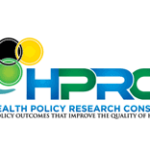IT to speed cancer clinical trials
CTIS is a critical component of the National Cancer Institute’s enterprise to evaluate new cancer drugs. For over 25 years, CTIS has been the lead provider of information technology service in support of the National Cancer Trial Network of the National Cancer Institute’s Cancer Therapy Evaluation Program (CTEP-ESYS). The National Cancer Institute is the world’s largest publicly funded organization supporting cancer research – from basic discoveries in the lab to approval of new therapies and cures.
We are proud to be part of the NCI enterprise of support for cancer trials in over 2000 sites in the US and internationally.
The more than 25 separate software solutions underpinning CTEP-ESYS were developed and have been maintained consistently by CTIS for 25 years.
- Our solutions have allowed cancer researchers across the United States and internationally to collaborate together on common protocols for specific clinical trials. This means that precious time is saved as collaborators work efficiently to design and agree upon the parameters of the clinical trial. Without a user-friendly platform as developed by CTIS, reaching agreement on the clinical protocol is slowed, thereby slowing the trial itself.
- Our solutions have allowed sharing of adverse event data across cancer trial sites and with FDA in ways that speed information to those who need it most – medical monitors and regulatory officials who judge whether specific adverse events require a pause in the study or a stop altogether in order to protect patient safety.
- Our solutions have ensured that clinical trial data are secure, protecting patient identifiers.
- When taken altogether, our solutions across the spectrum of clinical trial activities at thousands of sites, lead to faster development of NDAs for drug approval and faster access to approved treatments for patients.
CTEP-ESYS is a perfect example of how CTIS’ work has improved health outcomes and has saved lives, all in keeping with our vision that information technology is critical to the advancement of healthcare and clinical research.
CTIS received a $100 million award in 2022 under CIO-SP3 for the next 5 years’ support of CTEP-ESYS.
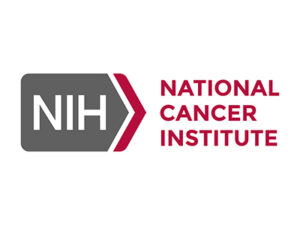
Managing Information and IT Processes to advance the Nation’s Infectious Disease Research Agenda
CTIS works in partnership with other private sector groups to support critical information technology infrastructure and processes at NIH’s National Institute of Allergy and Infectious Diseases (NIAID).
–CTIS provides expertise and support to NIAID’s Clinical Research Management System which enhances information exchange and promotes collaboration across NIAID programs, streamlines compliance with Federal regulations and data standards, and reduces infrastructure and development costs.
CTIS provides Project Management, Project Management Support, Program Coordination Support, and Federal Records Management. We provide strategic support, establishing requirements that provide an overview of key implementation tools and interrelationships to enable research, decision making, collaboration, and development efforts. Support also includes build vs. buy and operational analyses, regular cost and schedule reporting, and compliance validation. Additionally, our support of the NIAID CRMS Digital Government strategy focuses on data interchange and harmonization activities with internal and external collaborators, promoting knowledge management.
CTIS provides software development, maintenance, application integration, business intelligence and analytics, IAM, document management, training and training documentation, help desk and user support, application security, security assessment and authorization support, data management, data migration, and integration to support key business areas and stakeholder interests surrounding NIAID’s diverse research agenda.
CTIS is a subcontractor to Digital Infuzion on this contract.
—CTIS provides critical support to the National Institute of Allergy and Infectious Diseases (NIAID) Division of AIDS to assist in managing information which underpins NIAID-supported clinical trials and related regulatory documentation.
CTIS provides Project Management, Project Management Support, Program Coordination Support, and Federal Records Management to the Division of AIDS Regulatory Support Center (RSC), to the CIO of the NIAID Office for Policy in Clinical Research and other business owners. Deploying effective IT governance solutions, activities supported include strategic planning, clinical trial registration and regulatory tracking, project lifecycle management (guided by Agile/CMMI), and the implementation of security controls. We maintain RSC’s legacy Management Information System and other RSC-related databases and applications, allowing scheduling, tracking, reporting, security, storage, modification, transmission, and disposition of all work and work products generated under this contract.
CTIS hosts and manages the development and test environments for RSC systems and applications in accordance with industry best practices. Our team provided operational IT support to both legacy and newly developed components within the NIAID CRMS, including requirements management and reporting and software maintenance, upgrades, and enhancements. CTIS has developed new products (i.e., Adverse Events Processing System, Protocol Registration, IND/Regulatory Management, and Protocol Development Tracking) to replace the legacy DAIDS-RSC Management Information System (MIS). CTIS supports the fulfilling of the NIAID/DAIDS requirement for regulatory and technical support.
CTIS is a subcontractor to Technical Resources International on this contract.
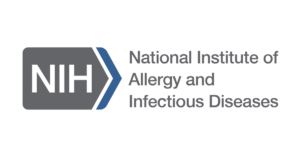
Speeding research on viral disease and surveillance by migrating data to the cloud
CTIS is proud to have been chosen as the cloud implementation partner to expand the NIH-supported SUNY Buffalo collaboration with the University of the West Indies (UWI) on its viral surveillance program.
Jamaica and the Caribbean region endure cyclic epidemics of mosquito-borne diseases, including Chikungunya, Dengue, yellow fever, and Zika. Ministries of Health (MOH) across the region constantly monitor the spread of these viruses and conduct routine surveillance for the emergence of pandemic strains of respiratory viruses including influenza and SARS-CoV-2. The University of the West Indies (UWI) in Jamaica plays a key role in viral surveillance as it houses the National Influenza Center which provides weekly reports to the Surveillance Unit of the MOH. In addition, it has Jamaica’s only Next Generation Sequencer which is used in both surveillance and research.
The partnership with CTIS will expand the work of SUNY Buffalo’s Global Infectious Diseases (GID) Research Training Program, led by Dr. Gene Morse and in partnership with Dr. John Lindo, Chair of Microbiology at UWI and Director of the National Influenza Center, Jamaica MOH, supported by the Fogarty International Center of NIH. Srikanth Uppalapati, CTIS’ Chief Innovation Officer leads the effort for CTIS.
The work will allow migration of virus surveillance data to the cloud to allow for deeper analysis by researchers and trainees from multiple UWI campuses and access to richer data for new research projects. At the same time, it will provide opportunities to increase working knowledge of data migration and data manipulation in a shared computational cloud environment for tomorrow’s leaders in medical virology, an essential feature of a robust training program in any field of global health.

Health Policy Research — Putting Real World Data into Action
CTIS and its Health Policy Research Consortium (HPRC) provided leadership and informatics support to address disparities in health outcomes across population groups through policy studies and advocacy. The HPRC received funding from the National Institute on Minority Health and Health Disparities of the National Institutes of Health as a multi-million dollar cooperative agreement over 5 years, which recently completed its work.
Members of the consortium included community-based organizations, faith-based organizations, schools of public health, state public health departments and clinical partners to design and conduct research studies whose outcomes would inform public policy decisions. The HPRC served as a hub of scientific expertise and community insight, with a solid foundation of informatics developed and maintained by CTIS in support for the enterprise.
Consortium members include:
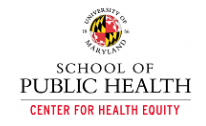
The Center for Health Equity at the University of Maryland School of Public Health with a focus on eliminating racial and ethnic disparities and increasing minorities in health research through the Building Trust Initiative.
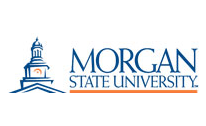
The Morgan State University School of Community Health and Policy (SCHP) with a focus on HPRC’s policy literacy research initiative:
- The Health Policy Literacy Study (HPLS): Bridging the Gap between Community, Science and Policy
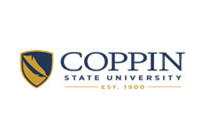
The Helene Fuld School of Nursing at Coppin State University with a focus on: The Health Policy Literacy Study (HPLS): Bridging the Gap between Community, Science and Policy, and Disadvantage in the Food, Built, and Social Environments: A Study of Cardiovascular Health (The CVD Study)
Selected Publications:
Cardiovascular disease in the Nation’s Capital: How Policy and the Built Environment Contribute to Disparities in CVD Risk Factors in Washington, DC. J. Racial Ethnic Health Disparities, 2019, 6 (1): 46-55.
Health Policy Responsiveness: Lessons Learned from Maryland and Prince George’s County. J. Racial Ethnic Disparities, 2017, 5(2): 366-374.
